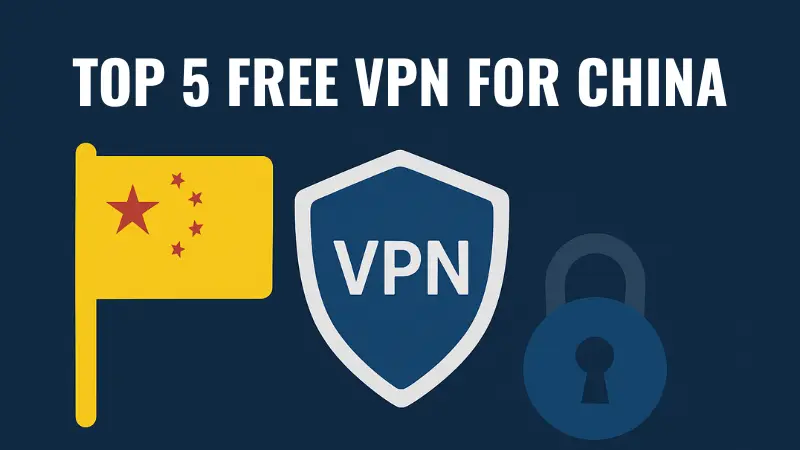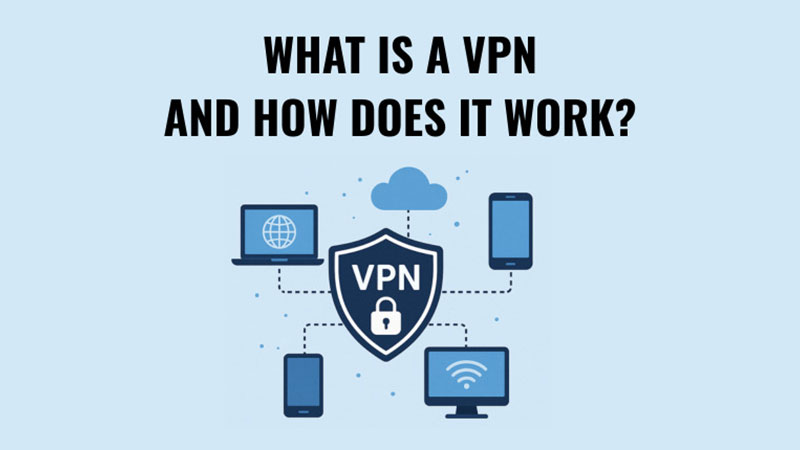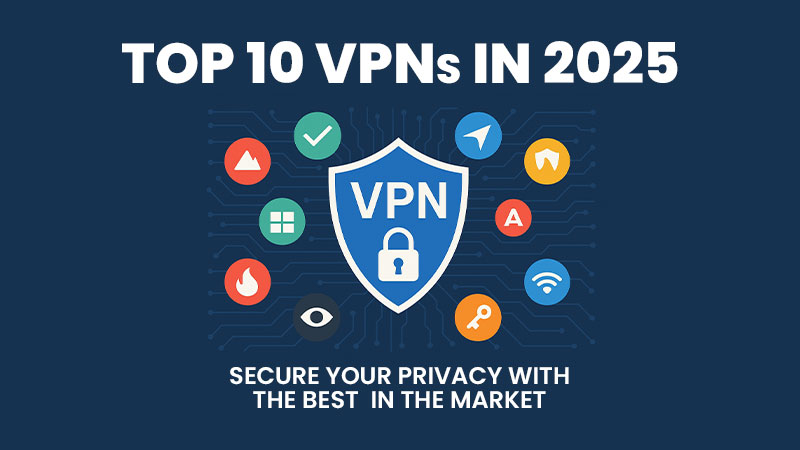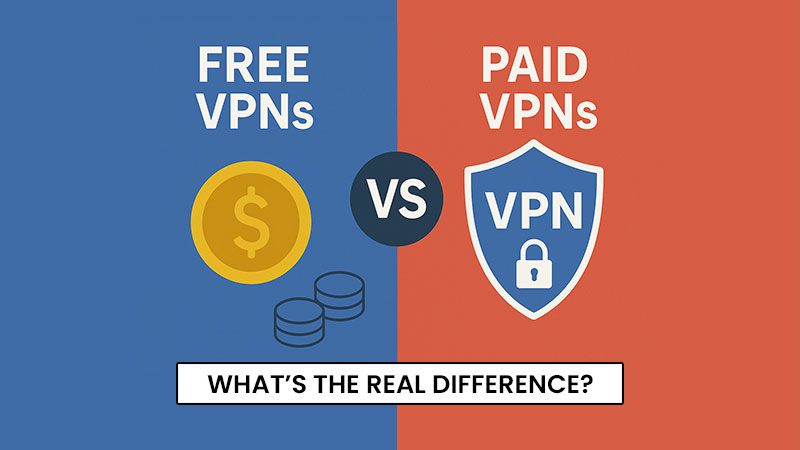If you’re planning to travel to or live in China, accessing popular websites like Google, YouTube, Instagram, and WhatsApp can be a challenge due to the country’s strict internet censorship – commonly referred to as the Great Firewall of China. A Virtual Private Network (VPN) is one of the most reliable tools to bypass these restrictions. Looking for the best free VPN for China? Here’s how to find one that’s safe and reliable.
In this guide, we’ll walk you through everything you need to know to make the right choice, especially if you’re looking for a free option that still works in China.
Why You Need a VPN in China - Stay Secure and Access Blocked Sites
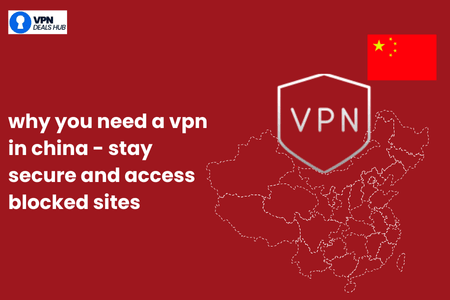
China’s internet censorship, often referred to as the Great Firewall, is one of the most advanced digital surveillance and content-blocking systems in the world. Many common websites and apps are completely unavailable in China due to internet restrictions.
Popular services that are blocked include:
- Google (Search, Gmail, Maps, Docs, etc.)
- Social media platforms like Facebook, Instagram, X (Twitter), and Snapchat
- Messaging apps such as WhatsApp, Telegram, and Signal
- Streaming services like YouTube, Netflix, and Spotify
- News websites including BBC, The New York Times, and Reuters
Without a reliable VPN in China, you’re limited to Chinese platforms and search engines, which may filter results and restrict access to global content. This can make daily activities like checking work emails, staying in touch with friends and family, or accessing unbiased news incredibly frustrating.
Using a VPN that works in China allows you to:
- Bypass the Great Firewall and access global websites and apps
- Protect your data from government surveillance and hackers, especially on public Wi-Fi
- Maintain your digital freedom, whether you’re a tourist, expat, journalist, or business traveler
- Stay connected with international services that are essential for communication, productivity, or entertainment
A VPN with China server (for those abroad wanting to access Chinese content) also helps users outside China reach domestic-only services like Bilibili, WeChat Pay, or certain regional banking apps.
In short, a VPN is more than just a convenience – it’s a critical tool for privacy, access, and freedom in an otherwise heavily restricted internet environment.
Why Free VPNs Struggle in China?
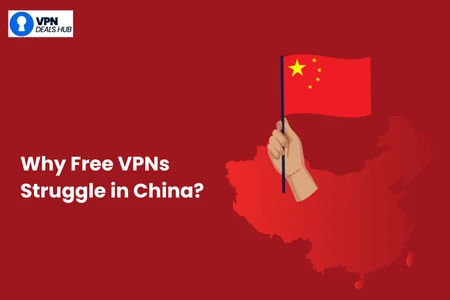
Before diving into how to choose one, it’s important to understand the significant limitations of free VPNs, especially in a country with strict digital surveillance like China.
- Blocked Access: Many free VPNs simply do not work in China. The Chinese government aggressively detects and blocks VPN traffic, especially from services that don’t use advanced obfuscation or stealth protocols. Most popular free VPNs are already blacklisted and cannot connect at all.
- Unstable Connections: Even if a free VPN initially connects, it may not remain stable. The Great Firewall frequently disrupts VPN servers, causing frequent disconnections, lag spikes, and difficulty in reconnecting. This makes activities like video calls, streaming, or browsing frustrating.
- Data Caps and Speed Limits: Free VPN services typically offer limited data allowances often only a few hundred megabytes per day or month. That’s barely enough for casual use, let alone streaming or downloading. Additionally, free plans are known for reduced speeds, making everyday browsing slow and inefficient.
- Limited Server Options: Free VPNs usually provide access to only a handful of servers, most of which are overcrowded. This can worsen performance and make it harder to find a server that still works from inside China. Also, finding a VPN with China server (if you’re abroad) is almost impossible with free providers.
- Security Risks and Privacy Concerns: Many free VPNs earn revenue through ads, trackers, or even selling user data. In an environment like China, where online activity is already under scrutiny, using a VPN that doesn’t prioritize privacy can expose users to even more risk. Some free VPNs have even been caught bundling malware or spyware.
- Lack of Customer Support: If something goes wrong, don’t expect much help. Free VPNs usually offer minimal or no customer support. That’s a problem when dealing with complex censorship systems that require frequent technical updates and assistance.
So, while the idea of a free China VPN sounds appealing, the reality is that most fall short when it comes to reliability, security, and usability. The key is to choose the best VPN in China free – one that has a reputation for working behind the Great Firewall, offers some level of user protection, and receives consistent updates to adapt to China’s changing censorship tactics.
Top Features to Look for in a Free VPN for China
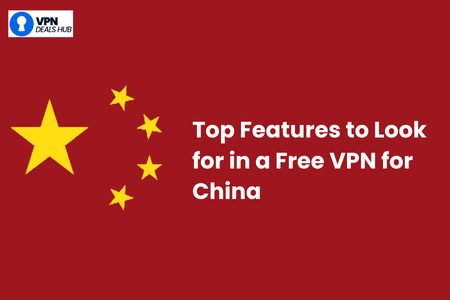
Here are the most important features to evaluate when selecting a VPN that works in China, especially if you’re relying on a free version:
Works Consistently in China
The most critical factor is whether the VPN can consistently bypass the Great Firewall. Look for providers that specifically advertise support for users in China or offer stealth protocols that disguise VPN traffic as regular HTTPS data. Without this, your VPN will likely be blocked.
Strong Encryption & No-Log Policy
In a country with advanced surveillance systems, you must ensure your VPN maintains a high standard of data security. Look for:
- AES-256-bit encryption (military-grade security)
- A verified no-logs policy to ensure your data isn’t recorded or stored
- Built-in features like kill switch, DNS leak protection, and IPv6 leak blocking
These tools ensure your personal information and online behavior are kept private, even if the VPN disconnects.
Obfuscated Servers or Stealth Mode
Free VPNs are more vulnerable to detection. A reliable VPN for China should include obfuscation features that allow it to operate undetected by Chinese filters. This is crucial, especially when the government intensifies its blocking efforts around politically sensitive dates or events.
Sufficient Bandwidth & Speed
Many free VPNs limit how much data you can use per day or month. Choose one that offers at least 500MB to 1GB per day or a decent monthly allowance (e.g., 10GB/month). Also, check for:
- Low latency servers located close to China (e.g., Hong Kong, Japan, Singapore)
- No severe speed throttling for free users
- Consistent performance during peak hours
Slow speeds or limited data can make even basic browsing painful, especially when accessing multimedia or cloud-based tools.
Cross-Platform Compatibility
A good VPN should be accessible across all your devices. Check that it works seamlessly on:
- Windows and macOS
- Android and iOS smartphones
- Browser extensions for Chrome or Firefox
Some VPNs even support routers and smart TVs, which can be useful for households or digital nomads.
Active Support and Community Feedback
China’s firewall is constantly evolving, so your VPN provider needs to stay ahead. Choose a VPN with:
- An active development team
- Responsive customer support (even via email or live chat for free users)
- A reputation for updating server configurations regularly
Look at tech forums, Reddit threads, or VPN comparison sites to see how the VPN performs in real-world scenarios. These insights are especially helpful in gauging how long a VPN remains effective after new censorship rollouts.
In summary, finding the best free VPN for China requires balancing functionality with limitations. Always test the VPN outside of China first, verify it has a record of working behind the firewall, and consider keeping a paid backup option on hand just in case.
Using a VPN in China? Try These Reliable Freemium Options
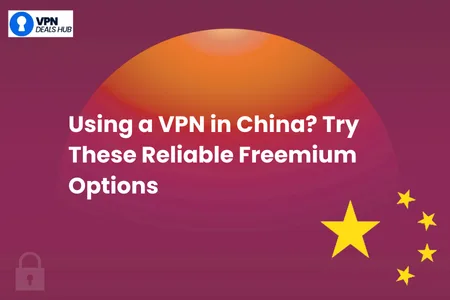
Sometimes, the best “free” VPNs for China aren’t entirely free — they’re freemium VPNs, offering a limited version of their premium service at no cost. These providers typically include the same core technology as their paid plans but with data caps, fewer servers, or speed restrictions. Despite those limits, freemium VPNs are often more secure, reliable, and better maintained than fully free alternatives.
Here’s why they stand out:
- They are built by reputable companies with established privacy policies and proven track records.
- They often include advanced features like kill switch, obfuscation, and strong encryption even in their free versions.
- They receive regular updates, ensuring better resilience against China’s censorship tactics.
Popular freemium VPNs that sometimes work in China include:
- ProtonVPN – Offers a free plan with no data limits, strong privacy protections, and a clean, easy-to-use interface. While speeds are slower, it doesn’t compromise your security.
- Windscribe – Provides 10GB of free data per month and access to several server locations. It also features built-in ad blocking and DNS leak protection.
- Psiphon – An open-source VPN that uses multi-layered tunneling techniques to bypass internet censorship. Although it can be slower, it’s very effective for basic browsing.
A freemium VPN allows you to test out the service risk-free, and if it performs well, you can later upgrade to a paid plan for more bandwidth, faster speeds, and premium support. This is especially helpful in China, where VPNs that work today might be blocked tomorrow.
In many cases, starting with a freemium VPN gives you the flexibility and reliability needed for short-term travel or light usage without having to immediately invest in a paid solution. For users who prioritize both freedom and privacy, a freemium model can strike the ideal balance.
Frequently Asked Questions (FAQs)
Is it legal to use a VPN in China?
While VPN usage is heavily restricted and monitored in China, tourists and foreigners are rarely penalized for using VPNs. However, always stay informed and cautious.
Can I download VPNs once I arrive in China?
No. Most VPN websites are blocked in China. It’s best to install and test your VPN before entering the country.
Why do free VPNs stop working in China?
China constantly updates its censorship systems. VPNs without advanced obfuscation often get blocked quickly.

